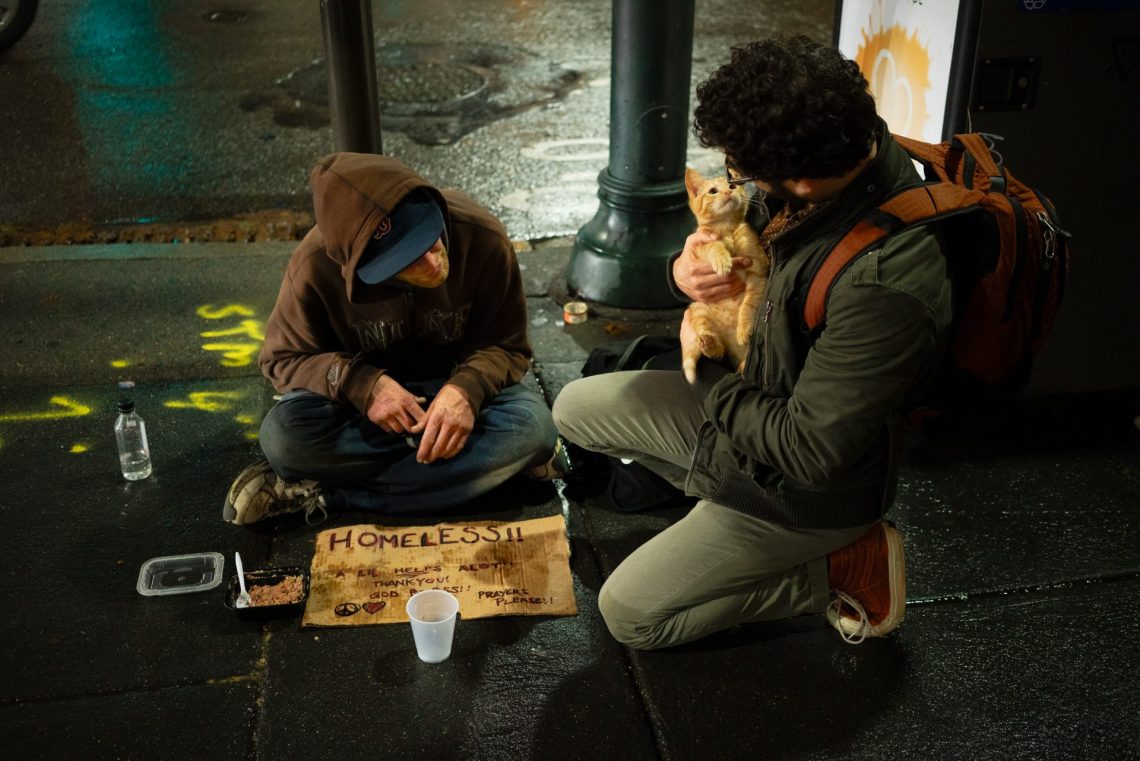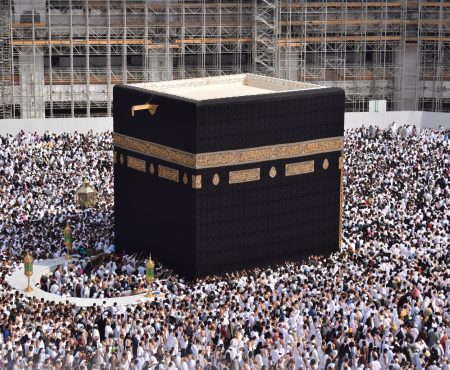Homelessness is considered one of the modern world’s most serious problems. Although society has come a long way in finding solutions for many of the issues it faces, poverty and homelessness still remain a big problem in today’s world.
Various reports indicate that about two percent of the world’s population is homeless and about 20 percent lack adequate housing, with the numbers continuing to rise. Many of the world’s homeless also happen to reside in some of the most populous areas of the world. In the US, for example, New York and California have some of the largest homeless populations in the country. These areas also tend to have the highest earnings per capita than other areas. Yet, the number of homeless individuals in these regions seems to be growing by the day.
(Also watch our short Ways Out video: Is there a way out of the homelessness issue? Here’s the Islamic way.)
With the rate at which people are becoming homeless growing by the day, many people are led to wonder what has led to so many people not having a decent place to live. Many factors can contribute to homelessness including inflation, addiction, mental health issues, and unemployment. However, in a day and age where workable solutions are quickly found for some of the world’s most widespread problems, it seems rather odd that so many people are left without a home and others on the verge of losing their homes. On the other hand, the world’s elite are continuously pulling in record-breaking profits, leading people to wonder what the root cause is and what can be done in order to put a permanent end to this problem.
With capitalism’s role in enabling the collection of interest on just about everything and the concentration of wealth in the hands of a few at the expense of the working class, many people have started to question the system in place and its contribution to many of today’s problems.
Some may argue that socialism is the way to go, as it is in favor of eradicating the wealthy class altogether in order to achieve equality, leaving fewer people homeless than a capitalist society.
In a socialist society, the government takes over all means of production, severely limiting individual ownership while advocating for the equal distribution of wealth among people. This causes society to depend on the government for everything including food and healthcare. Moreover, it eliminates competition altogether. Members of society are valued based on how much they work, not the quality of work they produce. Despite the well-intentioned efforts of eradicating poverty, the resulting effect was a society that was not motivated, causing decreased production. As seen in many socialist countries, while more people had a roof over their head, the conditions still resulted in extreme poverty and conflict between social classes, which in many cases lead to anarchy on a large scale.
That leaves us with very few applicable solutions that can be applied on a large scale.
One such option is the one offered by Islam. The Islamic economic system offers various solutions worth looking at as it avoids the two extremes of wealth hoarding and eliminating competition all together. The laws in place in Islam are aimed at tackling the issue of poverty, including homelessness, and to create a balanced and equal society.
According to Islamic teachings, a government is required to provide a safe and secure environment for people to work and trade in, while having firm laws in place to prevent the means of wealth hoarding by a select few, and to prevent the profiting of one group by means of exploiting another.
In today’s society, interest and usury have played a key role in exploiting the majority of the population for large profits. The practice is so widespread that it is practically impossible to avoid. Known as Riba in Arabic, interest and usury are completely forbidden in Islam, however. The Quran along with the sayings of the Prophet Muhammad (PBUH) have taken a clear stance in numerous verses and sayings, warning people not to engage in this practice.
“Those who consume interest cannot stand [on the Day of Resurrection] except as one stands who is being beaten by Satan into insanity. That is because they say, “Trade is [just] like interest.” But God has permitted trade and has forbidden interest. So whoever has received an admonition from his Lord and desists may have what is past, and his affair rests with God. But whoever returns to [dealing in interest or usury] – those are the companions of the Fire; they will abide eternally therein.” (Quran 2:275)
“O you who have believed, do not consume usury, doubled and multiplied, but fear God that you may be successful.” (Quran 3:130)
As usury and interest are often associated with loans, it is worth mentioning that Islam has also provided Muslims with clear cut rules on their handling of loans.
As evident in many capitalist societies, many people have lost their homes and other property because of their inability to pay back their loans. These loans include real estate, medical, student debt, and vehicle loans. Almost all of these loans carry some form of interest, with the person borrowing the money usually having to pay back a few times the amount of the principle loan in interest. People are often faced with unexpected problems such as a layoffs or medical emergencies, causing them to be a bit late in their payments. In most cases, if given more time, said person may be able to continue making their regular payments without a problem. Unfortunately, however, the opposite is the case. Not only are people not given more time, they are charged enormous penalties, causing them to fall deeper in debt, and in many cases their property is repossessed by the lending institution. In addition, their credit scores are affected, making it much more difficult to purchase anything in the future unless they pay a heftier interest rate or pay the money upfront, which most people cannot afford. This has caused many ordinary people to go bankrupt, their properties taken over by the banks, and their credit scores being heavily damaged to say the least. With such a system in place, the amount of people that end up homeless and on the streets is not at all surprising. The effects are so severe that homelessness is the least of their problems as the ability to get back on their feet is severely diminished due to the heavy burden of debt.
Based on Islamic law, if you lend someone money, you are not allowed to charge that person interest. If the person is late in paying back their loan, a Muslim is encouraged to give that person more time. Charging late fees is also considered a form of interest and, therefore, forbidden. While not required, Islam also encourages loan forgiveness for those who are truly unable to pay back their dues.
“If anyone would like God to save him from the hardships of the Day of Resurrection, he should give more time to his debtor who is short of money, or remit his debt altogether.” – Prophet Muhammad (PBUH)
Although simple and straight forward, when applying the solutions provided by Islam with regard to interest, it is rather obvious how the damaging ripple effects of this practice, particularly homelessness, are almost entirely eliminated.
“And whatever you give for interest to increase within the wealth of people will not increase with God. But what you give in zakah, desiring the countenance of God – those are the multipliers.” (Quran 30:39)
Additionally, Islam requires all Muslims to pay Zakah, or a religious tax to assist and feed the poor. If a Muslim possesses any form of income which is left unused in one year, he is required to pay 2.5% of that amount in what the Quran refers to as “the right of the poor” (51:19). This amount is taxed only once, and only new wealth which is acquired and not used for a year is subject to this tax. While the percentage is quite small, the practice is effective in preventing the hoarding of wealth, while ensuring the wealthy are giving back to the less fortunate of their society.
While these examples offer a glimpse into the workable solutions available in the vast world of the Islamic Economic system, if applied, they can be very effective in drastically reducing the problem of homelessness in our society, creating a win-win situation for all, and allowing us to move on and reach new horizons in the advancement of the human race.






Tous les commentaires (0)